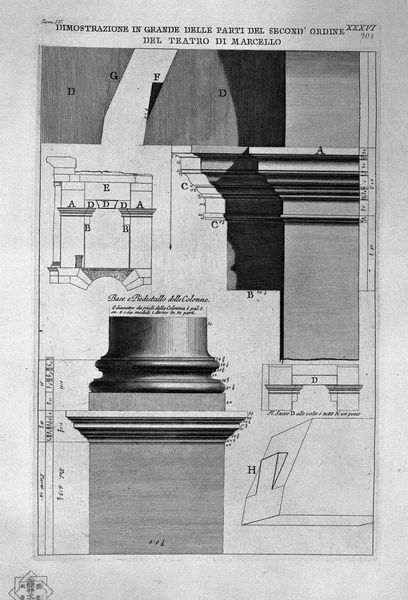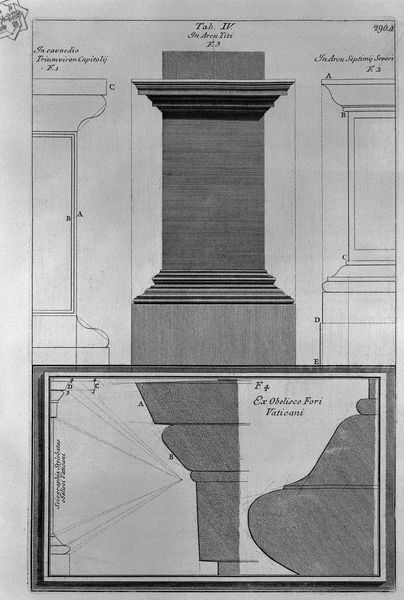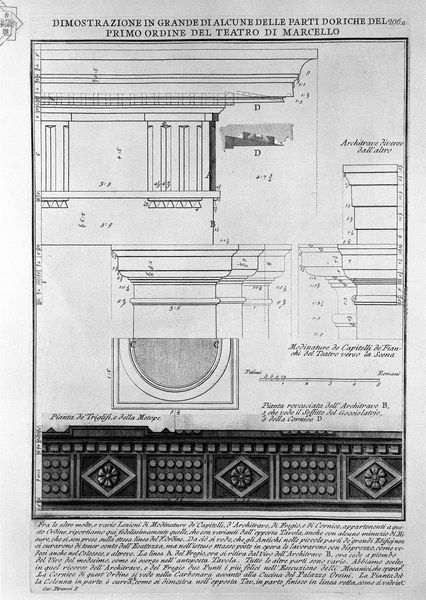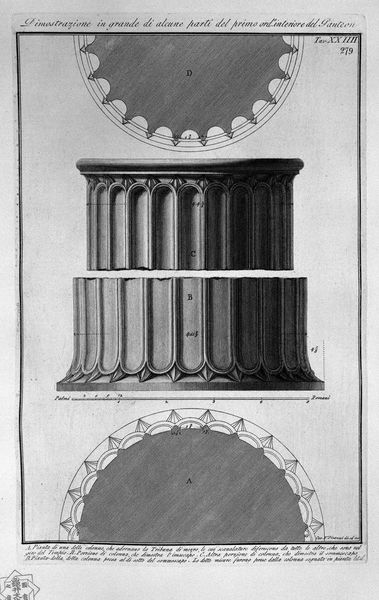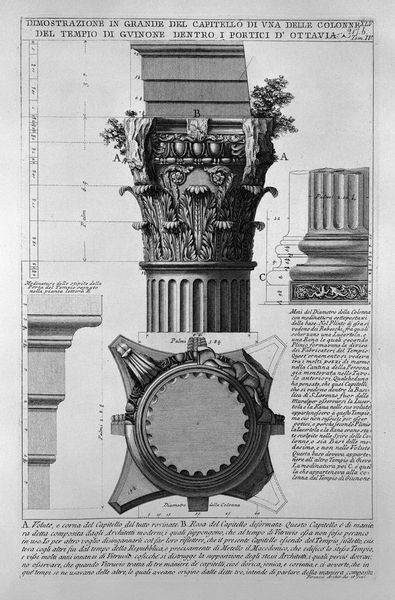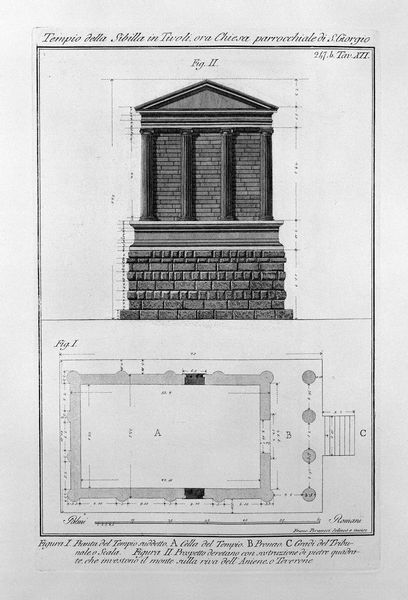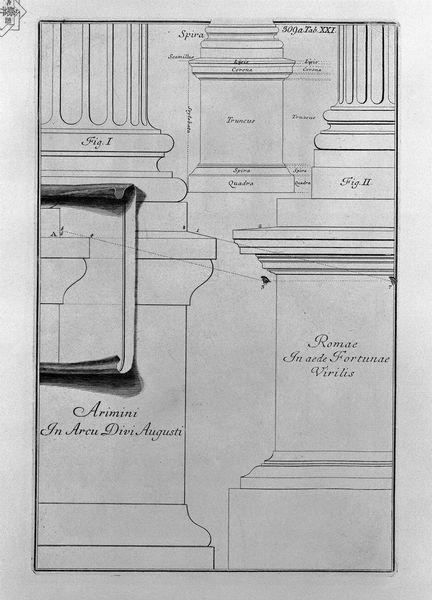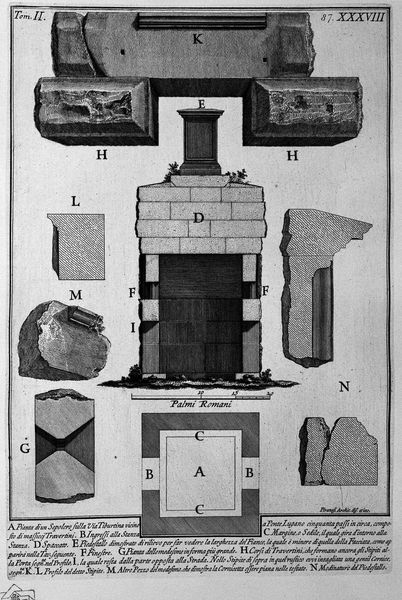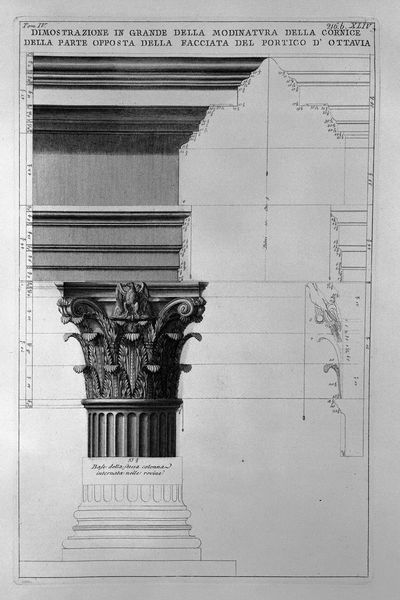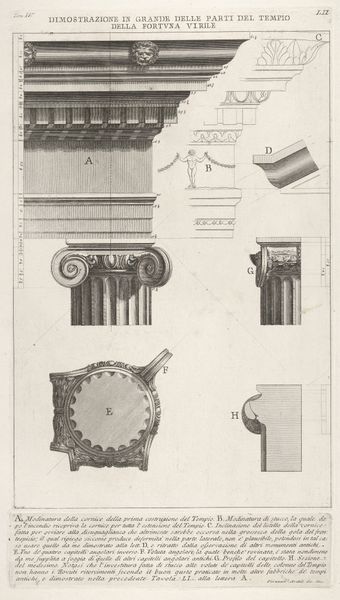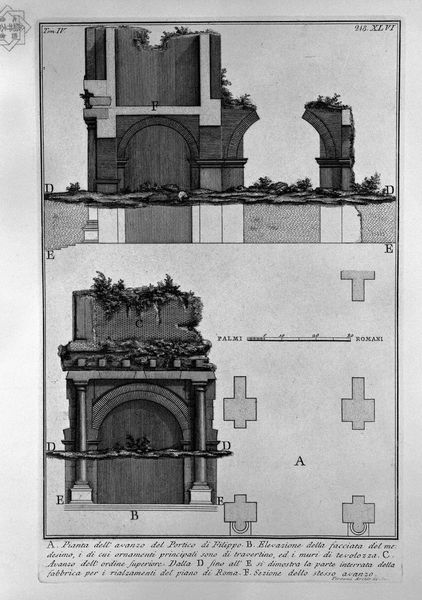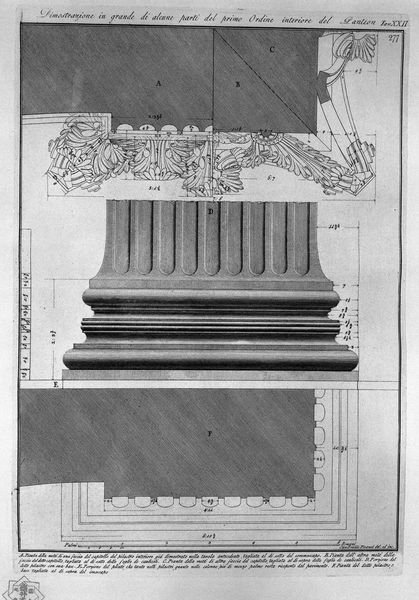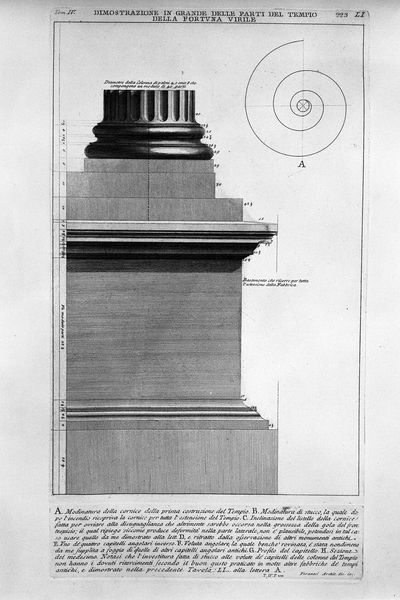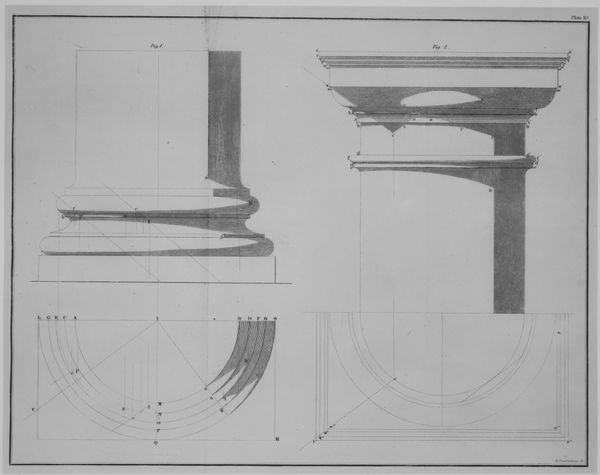
The Roman antiquities, t. 4, Plate XXXIV. Vista of some of the great parts of the first order of the Theatre of Marcellus.
0:00
0:00
drawing, print, etching, engraving, architecture
#
architectural sketch
#
drawing
#
building study
# print
#
etching
#
architectural plan
#
architectural design
#
historic architecture
#
architectural concept
#
geometric
#
ancient-mediterranean
#
arch
#
architectural section drawing
#
architectural drawing
#
line
#
architecture drawing
#
architectural proposal
#
engraving
#
architecture
Copyright: Public domain
This print of the Theatre of Marcellus was created by Giovanni Battista Piranesi in the 18th century. It strikes you with its detailed lines and stark contrasts of black ink on white paper. The artist’s etching captures a fragmented view of the ancient Roman theater, a composition of architectural elements detached from their original context. Piranesi’s print transcends mere documentation. Instead, it evokes a sense of sublime ruin. Each stroke meticulously defines the textures and forms of the stonework while the composition dissects the architectural elements into isolated components. The use of precise lines and shading creates an almost tactile quality, drawing the viewer into a dialogue with the past. The print functions as a semiotic system, where the architectural fragments serve as signs pointing to a lost grandeur. Piranesi's technique emphasizes the contrast between the precision of architectural rendering and the decay implied by the fragmented forms. This deliberate choice challenges fixed notions of classical perfection, inviting us to reconsider our relationship with history and memory.
Comments
No comments
Be the first to comment and join the conversation on the ultimate creative platform.
